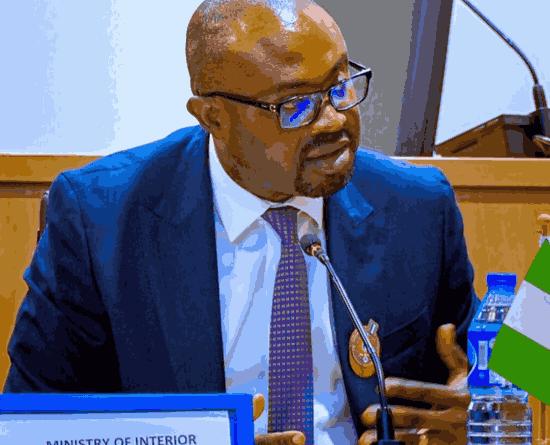The BTO Renewed Hope Media Team has commended the administration of President Bola Ahmed Tinubu, GCFR, for what it described as “bold, transformative reforms” that are repositioning Nigeria for sustainable growth and development under the Renewed Hope Agenda.
In a statement issued on Monday, the team noted that since assuming office, President Tinubu has demonstrated “exceptional courage and visionary leadership” through policies that are reshaping the nation’s economic, infrastructural, and institutional landscape.
The statement highlighted key reforms such as the removal of fuel subsidy and the unification of the foreign exchange windows, which have freed up resources for national development and sent strong signals to investors about Nigeria’s commitment to fiscal discipline. It also cited the administration’s repayment of the $3.4 billion COVID-19 IMF loan and the ₦100 billion Sovereign Sukuk loan, describing these steps as evidence of responsible economic management.
The BTO Renewed Hope Media Team gave special commendation to the Ministry of Interior under the leadership of Hon. Dr. Olubunmi Tunji-Ojo, applauding what it called his “transformative contributions” to effective governance. It particularly praised the ministry’s “historic feat” of clearing a backlog of 204,332 passports within just three weeks, a move it said has restored citizens’ confidence in government service delivery.
“Dr. Olubunmi Tunji-Ojo has redefined efficiency and innovation in public service,” the statement read. “His leadership has not only eased the burden on Nigerians seeking passports but has also repositioned the Ministry of Interior as a model of modern governance.”
Beyond passport reforms, Dr. Tunji-Ojo has also spearheaded an unprecedented transformation of Nigeria’s correctional system. Under his dynamic leadership, correctional centres—once seen merely as punitive spaces for punishment and social exclusion—are being repositioned as hubs of reformation, rehabilitation, and empowerment. The recent inauguration of the National Open University of Nigeria (NOUN) Special Study Centre at the Abakaliki Correctional Centre, Ebonyi State, marks a significant milestone in these far-reaching reforms, offering inmates the rare opportunity to pursue quality education and rebuild their lives.
In line with the minister’s vision, correctional centres are no longer to be viewed as places where society condemns and abandons its offenders, but as platforms for personal transformation and national reintegration. Dr. Tunji-Ojo has repeatedly stressed this in his policy drive: “I don’t want our correctional centres to be places of condemnation. Correctional service is becoming transformational, rehabilitatory, and, of course, reformatory, and that’s what I want to see,” he said, reiterating his resolve to redefine the role of custodial facilities in national development.
The Abakaliki NOUN Special Study Centre embodies this philosophy in action. Inaugurated by the Controller-General of the Nigerian Correctional Service, Ndidi Nwakuche, the centre was made possible through collaborative partnerships between government, private foundations, and development organisations. The building housing the facility was fully renovated and furnished by Hon. Chinedu Ogah, Chairman of the House Committee on Reformatory Institutions, while the Sudan Mission Foundation in the Netherlands equipped the centre with modern educational tools, ensuring that inmates have access to resources on par with regular university campuses.
During the inauguration, the Controller-General noted that the initiative signifies a shift in priorities for correctional management in Nigeria, emphasising that corrections should focus on redeeming lives rather than condemning them. He commended the Vice Chancellor of NOUN for sustaining the partnership that has so far established 15 correctional study centres nationwide, giving inmates across the country access to quality higher education.
The impact of this initiative is already evident in Abakaliki. Twenty-eight inmates have enrolled as pioneer students, 25 of whom are pursuing undergraduate degrees, while three are working toward their master’s programmes. The state controller of the correctional centre, Offem Bessie, described the development as “the opening of new doors of hope, opportunities, and transformation.” She highlighted that inmates now have the chance to upgrade their educational status and reshape their futures while serving their sentences, aligning with global best practices and the United Nations Standard Minimum Rules for the Treatment of Prisoners.
Hon. Chinedu Ogah praised the determination and resilience of the enrolled inmates, commending them for embracing education despite their current circumstances. He pledged that his foundation would fully support the pioneer students by covering tuition, books, and other learning materials to ensure they complete their studies without financial obstacles. “Being an inmate should not deprive anyone of the right to education or personal growth,” he said, adding that education remains one of the most powerful tools for reform and reintegration.
Mrs. Modukwe Adesina, the National Coordinator of NOUN Special Study Centres, provided further insight into the scale of these reforms. According to her, over 2,000 inmates across Nigeria have benefited from NOUN’s scholarship programmes, with 207 graduating from various undergraduate and postgraduate programmes across 12 custodial centres. With Abakaliki Correctional Centre now becoming the 15th facility approved by NOUN, more inmates than ever before will gain access to quality education, vocational training, and mentorship opportunities.
These strides in prison education are complemented by other innovative reforms introduced under Dr. Tunji-Ojo’s leadership. One of the flagship initiatives is the establishment of a dedicated showroom in Maiduguri, where products handcrafted by inmates are displayed and sold to the public. Supported by the United Nations Office on Drugs and Crime (UNODC), with funding from the German government and the U.S. Department of State’s Bureau of International Narcotics and Law Enforcement Affairs, the programme equips inmates with vital vocational skills, offering them a chance to contribute meaningfully to society while generating income.
The broader vision is clear: to create a correctional system that produces reformed, skilled, and responsible citizens capable of reintegration and positive contributions to the national economy. This approach has earned Nigeria commendation from international partners, who have lauded the ministry’s commitment to aligning correctional practices with global standards while upholding human dignity and promoting second chances.
Dr. Tunji-Ojo’s reforms reflect a deliberate shift from punitive incarceration to restorative justice. Rather than merely punishing offenders, the government is investing in programmes that equip inmates with education, vocational expertise, and entrepreneurial skills. The long-term goal is to reduce recidivism, combat societal stigma, and provide rehabilitated individuals with pathways to meaningful employment and self-reliance upon their release.
The synergy between the Ministry of Interior, NOUN, international partners, and local stakeholders has proven to be a catalyst for change. From transforming correctional centres into learning hubs to empowering inmates with practical skills, these reforms are reshaping the country’s justice and rehabilitation landscape. The Abakaliki study centre is a shining example of what is possible when reform-driven leadership is matched with collaboration and innovation.
For many inmates, the NOUN centre represents more than just classrooms and books; it symbolises hope, dignity, and the promise of a second chance. It underscores the government’s belief that every individual, regardless of past mistakes, deserves an opportunity to rebuild their life and contribute positively to society.
Beyond the Ministry of Interior, the team highlighted other landmark achievements of the Tinubu administration, including the establishment of the Nigerian Education Loan Fund (NELFUND), which grants zero-interest loans to tertiary institution students, the creation of new federal universities in Rivers, Osun, and Ekiti States, and the rollout of the Renewed Hope Cities and Estates Project to deliver 6,612 housing units nationwide.
It also pointed to major infrastructural projects like the Lagos-Calabar Coastal Highway, the Sokoto-Badagry Superhighway, and significant upgrades within the aviation sector, alongside President Tinubu’s legal victory over Process & Industrial Developments (P&ID) Ltd, which saved Nigeria a staggering $11.5 billion.
“The Renewed Hope Agenda is not just a slogan; it is a reality unfolding before our eyes,” the statement added. “Under President Tinubu’s leadership, and with dedicated public servants like Dr. Olubunmi Tunji-Ojo, Nigerians are seeing concrete results, improved services, and governance that truly delivers.”
The team concluded by expressing optimism that the administration would consolidate on its achievements and deliver even more transformative dividends to Nigerians in the years ahead.






